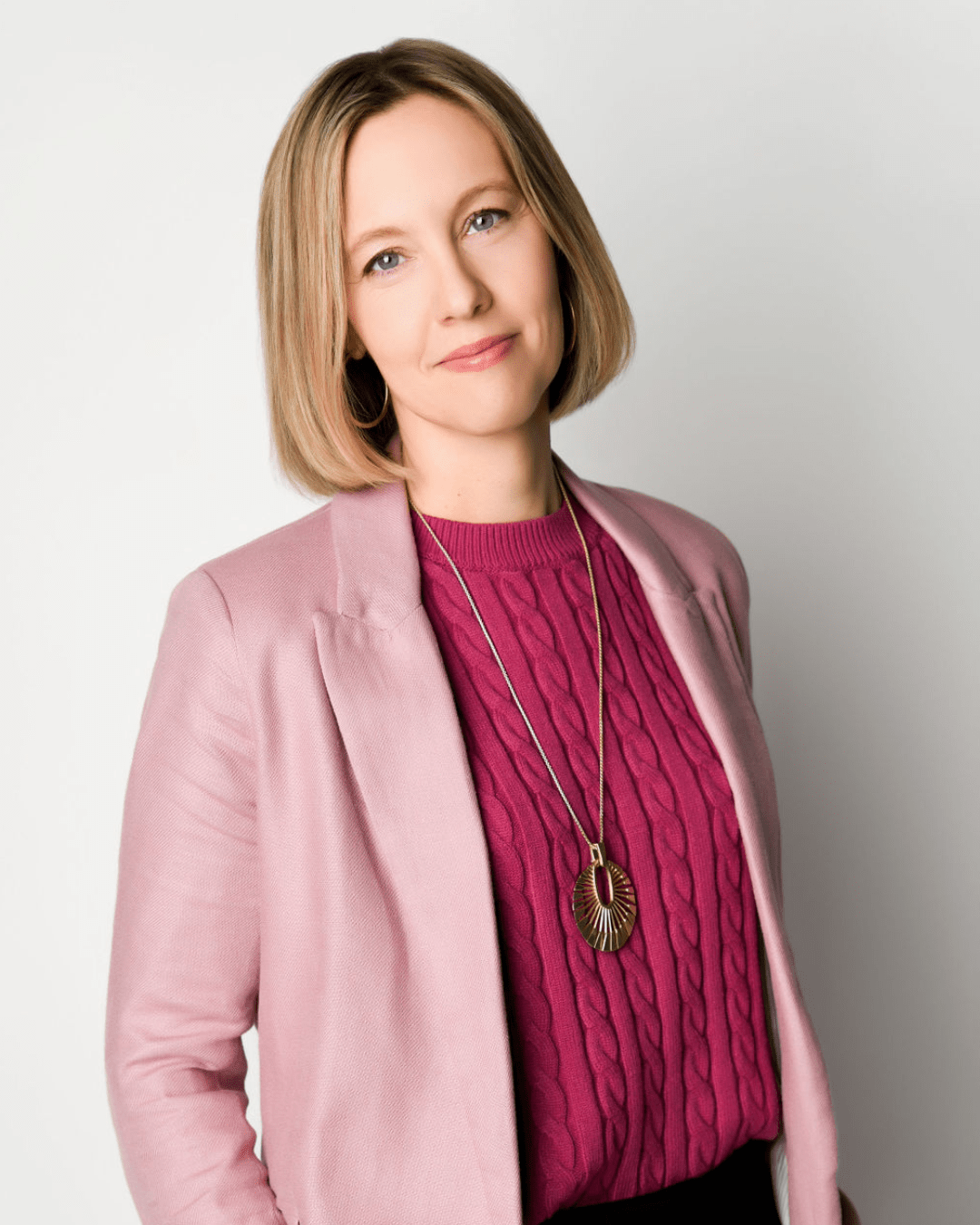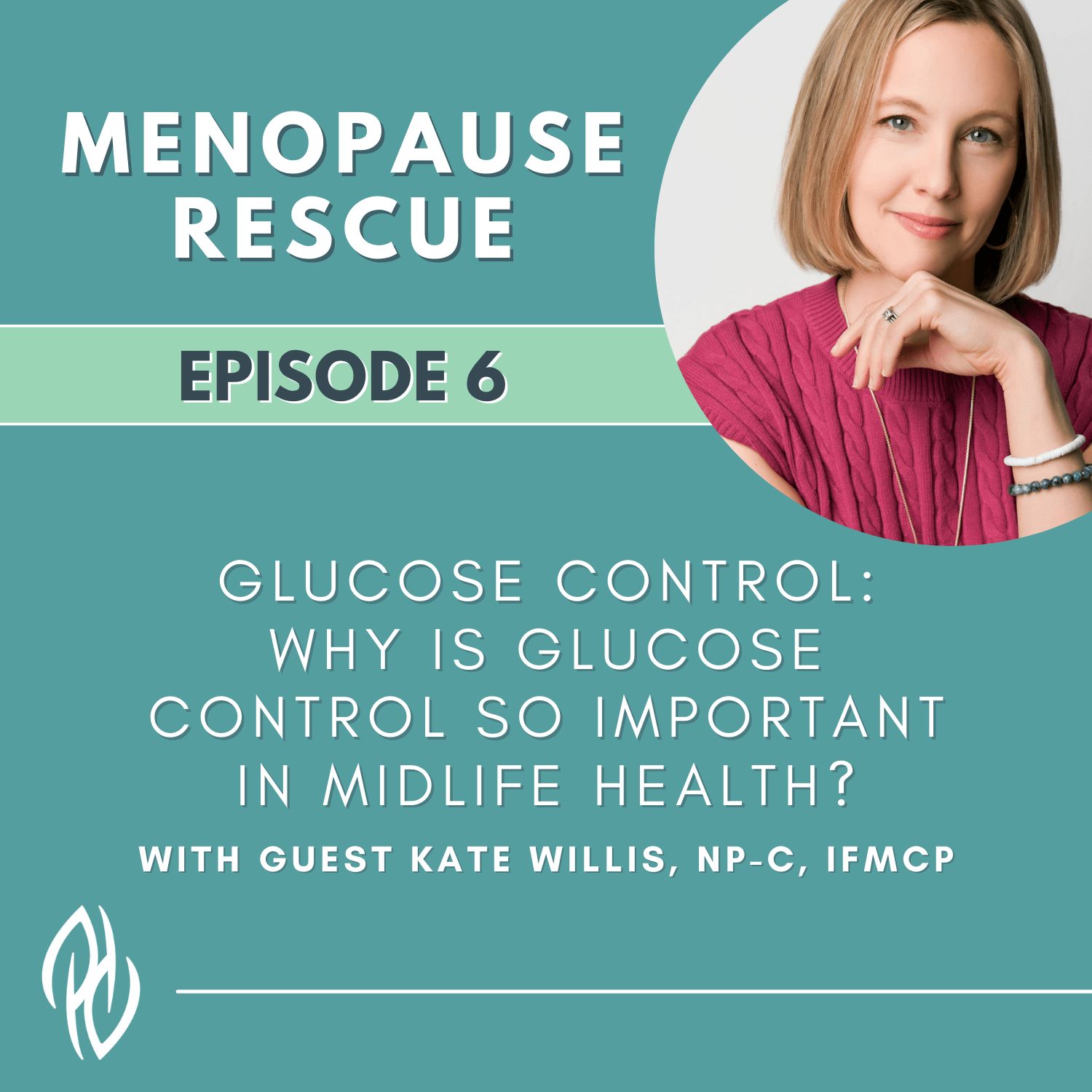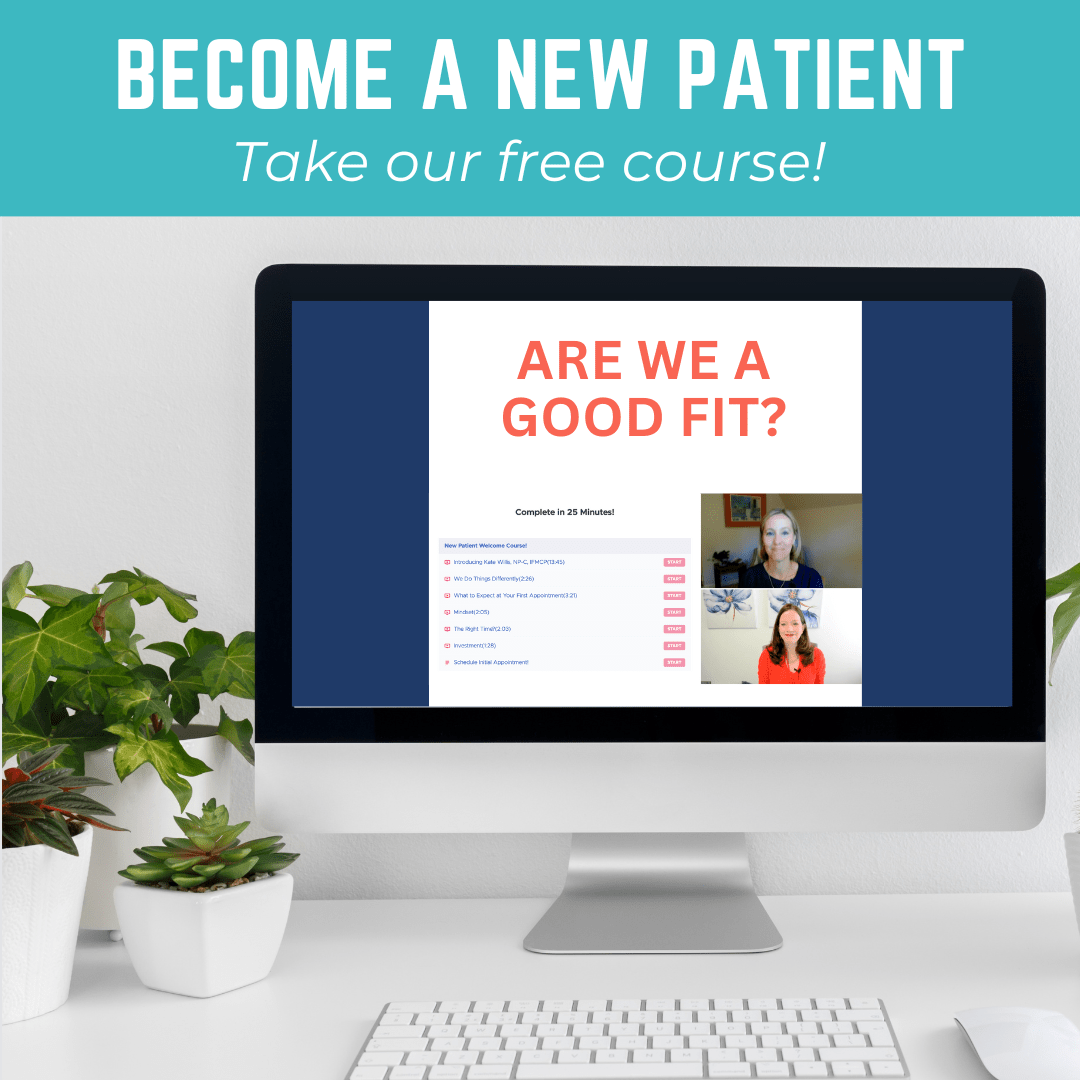Why Is Glucose Control So Important in Midlife Health?
Shedding light on the necessity of lifestyle and dietary changes to maintain optimal insulin sensitivity
Why Is Glucose Control So Important in Midlife Health?
Shedding light on the necessity of lifestyle and dietary changes to maintain optimal insulin sensitivity
“Glucose impacts everything,” says Kate Willis, a nurse practitioner certified in functional medicine from the Institute for Functional Medicine. Alongside Dr. Polly Watson, she discusses glucose control for midlife women’s health. This episode uncovers the foundational role of glucose in energy regulation, mood stability, mental clarity, and the avoidance of long-term health risks such as metabolic syndrome, cancer, heart disease, and neurocognitive disorders.
“When we’re having a lot of ups and downs with blood glucose levels, a CGM can be a great tool to clue us into why we may feel tired at certain times of the day.”
Kate brings her expertise to the forefront, explaining the complexities of insulin resistance—a condition in which the body requires more insulin to process glucose, potentially leading to serious health complications, including inflammation, weight gain, and an increased risk of cardiovascular disease. She highlights a common but often overlooked issue for women undergoing perimenopause and menopause: the changing dynamics of carbohydrate processing. This sheds light on the necessity of lifestyle and dietary changes to maintain optimal insulin sensitivity, emphasizing the pivotal role of nutrition in managing these transitions.
Watch The Conversation!
“Glucose impacts everything,” says Kate Willis, a nurse practitioner certified in functional medicine from the Institute for Functional Medicine. Alongside Dr. Polly Watson, she discusses glucose control for midlife women’s health. This episode uncovers the foundational role of glucose in energy regulation, mood stability, mental clarity, and the avoidance of long-term health risks such as metabolic syndrome, cancer, heart disease, and neurocognitive disorders.
“When we’re having a lot of ups and downs with blood glucose levels, a CGM can be a great tool to clue us into why we may feel tired at certain times of the day.”
Kate brings her expertise to the forefront, explaining the complexities of insulin resistance—a condition in which the body requires more insulin to process glucose, potentially leading to serious health complications, including inflammation, weight gain, and an increased risk of cardiovascular disease. She highlights a common but often overlooked issue for women undergoing perimenopause and menopause: the changing dynamics of carbohydrate processing. This sheds light on the necessity of lifestyle and dietary changes to maintain optimal insulin sensitivity, emphasizing the pivotal role of nutrition in managing these transitions.
Dr. Watson and Kate advocate for the use of continuous glucose monitors (CGMs) as a safe and informative tool for patients to gain a deeper understanding of their metabolic health. This is especially beneficial for those struggling with weight issues, PCOS, or who are at risk of developing prediabetes. They assert that CGMs enable patients to proactively manage their health during the challenging midlife years. Furthermore, they stress the importance of incorporating a nutritional perspective into glucose management, aiming for a holistic approach that encompasses dietary adjustments to ensure the best possible health outcomes.
Quotes:
- “We have glucose receptors all over our body. Our glucose levels impact how we feel and how we stay healthy as we age.” (01:30 | Kate Willis)
- “One of the things that happens during perimenopause and menopause is we tend to develop some relative insulin resistance. This does not mean that every woman who is going through menopause will develop type 2 diabetes or need medication. But it does mean that we will have a shift in the way that our bodies handle carbohydrates. We may need to make some changes in our lifestyle, our diets, or the way we exercise to really support being insulin sensitive.” (05:06 | Kate Willis)
- “When we’re having a lot of ups and downs with blood glucose levels, a CGM can be a great tool to clue us into why we may feel tired at certain times of the day.” (08:44 | Kate Willis)
- “To be able to see in real time what food is doing to your blood sugar level is very powerful. I think that data helps inform change and helps fuel change for many people.” (13:10 | Kate Willis)
- “I think about women who are struggling with their weight, women who are struggling with things like PCOS. We know there’s often some insulin resistance that is going along with PCOS. For people who are having trouble identifying what to eat, and what nutrition plan works for them, blood sugar is not the only thing we look at when we’re choosing a food plan or choosing nutrition, but it certainly is part of the equation. And so, I think it’s helpful to give people a tool to use to help navigate their food choices.” (19:09 | Kate Willis)
Resources:
Meet the host!
Dr. Polly Watson is a board certified OBGYN who has additional training in menopausal medicine, sexual medicine and functional medicine.
She looks forward to sharing her knowledge with you to help find a solution to address the imbalance in your system and restore your health.
In 2019 I left my job as an employed physician with a large organization and started Hormone Wellness MD. I started with no staff working out of a single room. Since then, my staff has grown to a team of 5 and we’ve helped over 1,100 people on their health journey.

Meet the Guest Speaker!
Kate Willis, NP-C, IFMCP is a virtual nurse practitioner for Hormone Wellness MD. She’s been working in women’s health for 14 years in the field of gynecologic oncology and sexual wellness.
In 2021, Kate received her certification through the Institute for Functional Medicine (IFM), and is thankful for such solid and evidence-based training. She uses it daily in her care for patients as she works to address the root cause of disease and dysfunction in the body.
I love working with women because I think women change the world.

Meet the host!

Dr. Polly Watson is a board certified OBGYN who has additional training in menopausal medicine, sexual medicine and functional medicine.
She looks forward to sharing her knowledge with you to help find a solution to address the imbalance in your system and restore your health.
In 2019 I left my job as an employed physician with a large organization and started Hormone Wellness MD. I started with no staff working out of a single room. Since then, my staff has grown to a team of 5 and we’ve helped over 1,100 people on their health journey.
Meet the host!

Kate Willis, NP-C, IFMCP is a virtual nurse practitioner for Hormone Wellness MD. She’s been working in women’s health for 14 years in the field of gynecologic oncology and sexual wellness.
In 2021, Kate received her certification through the Institute for Functional Medicine (IFM), and is thankful for such solid and evidence-based training. She uses it daily in her care for patients as she works to address the root cause of disease and dysfunction in the body.
I love working with women because I think women change the world.





